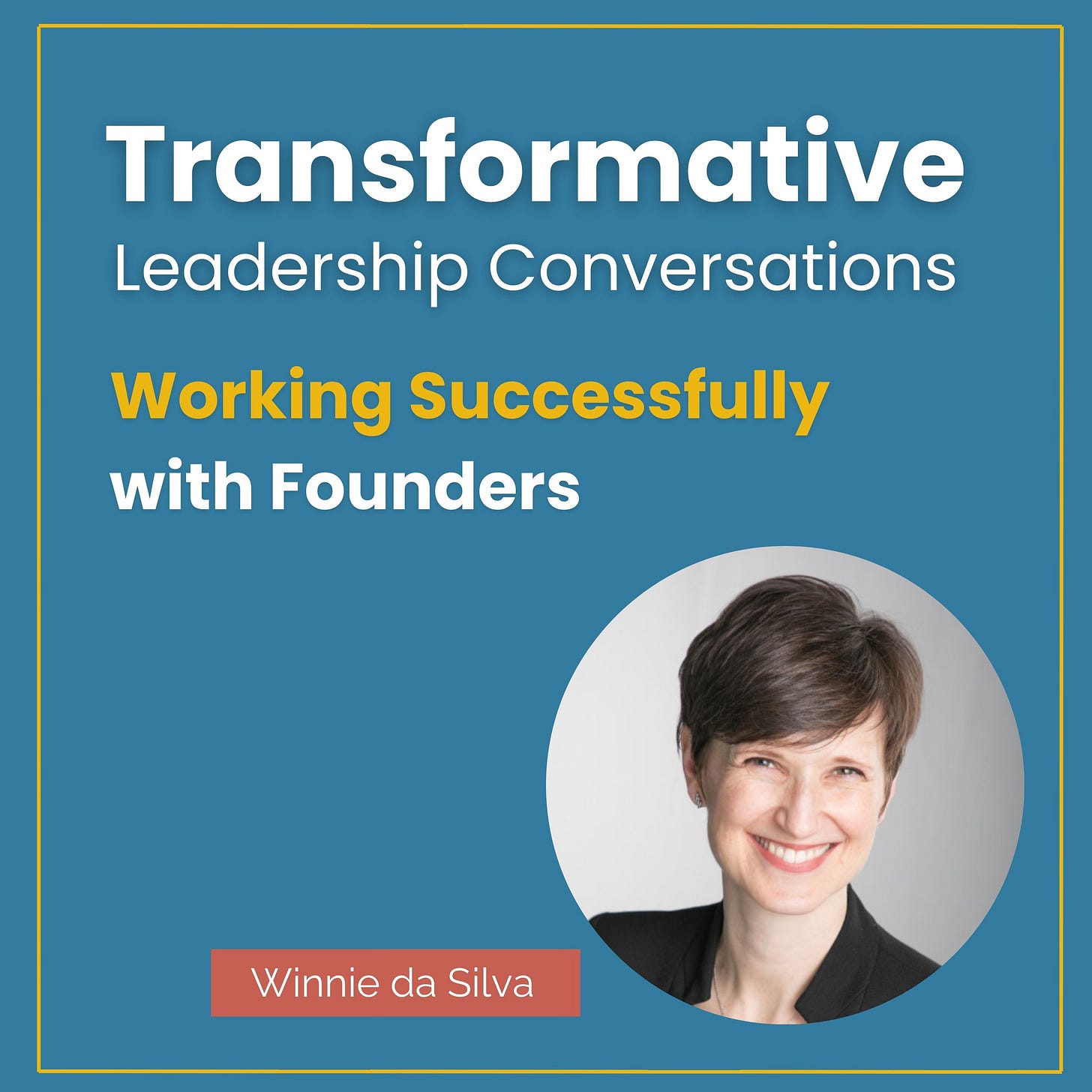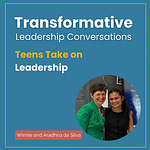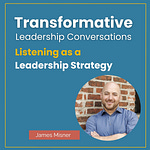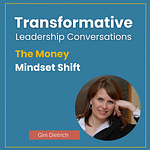
"Have you ever worked with a founder? What was that experience like? Inspiring? Frustrating? Maybe a little of both?"
Founders typically bring passion, drive, and bold vision, but they also come with blind spots, strong opinions, and intense expectations. If you want to work with a founder successfully, it’s not just about executing their vision—it’s about knowing how to challenge, support, and scale with them.
Who comes to mind when you hear the word "founder"? What picture immediately comes into focus?
Maybe it’s a genius of a white male, college dropout, in his late twenties, working seven days a week, pulling long hours, and never taking a vacation. Perhaps he’s a visionary technologist or a charismatic salesman. He either makes it big or crashes within the first two years.
Did this picture align with yours? Let’s look at some data…
Globally, there are 582 million entrepreneurs. But success isn’t always a solo endeavor—65% of the most valuable brands were founded by co-founders rather than a single founder.
Companies with more than one founder outperform solo-founder companies by 163% in revenue!
Yet, even among those who successfully launch a business, staying at the helm is rare. Only 50% of founders remain CEOs after three years, 40% after four, and just 25% make it to their company’s IPO as CEO.
While we love the idea of a dropout-turned-billionaire, the data tells a different story. 95% of entrepreneurs have at least a bachelor’s degree.
Also many assume the most successful founders are young disruptors in their 20s, but in reality, the average age of a founder is 42 and a 50-year-old founder is nearly twice as likely to succeed as a 30-year-old founder.
While the image of a founder is often associated with men, about 4 in 10 new entrepreneurs are women. The share of Hispanic or Latino entrepreneurs more than doubled from 10% to 24.2%, and the share of Asian entrepreneurs grew from 3.4% to 7.3%. Similarly, Black or African American entrepreneurs increased from 8.4% to 10.1%.
Unfortunately, these percentages have remained relatively stable over time, suggesting that progress has been very slow. Even more concerning:
Women founders received only 2% of venture capital (VC) funds in the U.S. in 2021—the lowest share since 2016.
While progress has been made, barriers still exist, especially for women and founders of color.
The 4 Founder Types: How Founders Lead Differently
Let’s now explore how founders lead – because of course not all founders operate the same way. Ryan Deiss, a serial entrepreneur and CEO of The Scalable Company, DigitalMarketer.com, and Scalable Equity, LLC, developed the Founder Type Matrix to categorize founders into four distinct archetypes: The Inventor, The Driver, The Builder, and The Guide.
Each type has unique strengths, leadership styles, and challenges. Understanding these types not only helps founders recognize their natural tendencies but also allows teams to work more effectively alongside them—leveraging their strengths, complementing their blind spots, and pushing them toward growth.
1. The Inventor
Inventors are idea generators—constantly envisioning new products, projects, and initiatives. They thrive on creativity and are driven by trends, instincts, and future possibilities. These founders are at their best when innovating and experimenting, but they can also struggle with focus, execution, and follow-through.
How to Work with Inventors:
Complement: Provide practical execution skills to bring their ideas to fruition. Inventors need strong operators and implementers who can turn ideas into reality and ensure they move beyond the ideation phase.
Challenge: Help them prioritize ideas by assessing feasibility, impact, and alignment with business goals. Engage in constructive debates to refine their ideas, ensuring they meet real-world needs rather than chasing abstract possibilities.
2. The Driver
Drivers are action-oriented leaders who push a company forward through sheer determination and high-energy execution. They are hands-on, thrive under pressure, and often believe that if something needs to be done right, they should do it themselves. This approach can lead to fast growth, but also burnout, bottlenecks, and micromanagement issues.
How to Work with Drivers:
Complement: Offer support in delegation and team development. Drivers need a strong leadership team to help distribute responsibilities and prevent burnout.
Challenge: Encourage long-term strategic thinking instead of just immediate action. Help them step back from micromanagement, build scalable processes, and trust their team to execute.
3. The Builder
Builders are systems thinkers who focus on scalability, efficiency, and structure. They excel at creating processes, managing teams, and optimizing operations to support long-term growth. However, their emphasis on systems and structure can sometimes lead to over-optimization, rigidity, and resistance to change.
How to Work with Builders:
Complement: Contribute creative problem-solving skills. Builders excel at establishing systems, but they need people who can introduce new ideas and adapt frameworks when necessary.
Challenge: Encourage flexibility and agility—reminding them that not all situations fit into rigid processes. Ensure that structure doesn’t stifle creativity or morale.
4. The Guide
Guides are visionary leaders who focus on mission, culture, and team development. They add value by asking insightful questions, coaching their teams, and fostering collaboration. While they excel at big-picture leadership, they may sometimes struggle with direct decision-making or be too hands-off in execution.
How to Work with Guides:
Complement: Take initiative in decision-making and problem-solving. Guides excel when they have people around them who align with their vision and can turn high-level ideas into action.
Challenge: Seek clarity and direction when needed. Encourage them to be more explicit in their guidance and step in directly when critical decisions need to be made.
By tailoring your approach to each founder type’s strengths and potential blind spots, you can collaborate for the best business results. Understanding who you’re working with makes all the difference in how you support them, challenge them, and ultimately help them succeed.
My Experience Working with Founders
Over the past 20 years, I’ve had the privilege of working with dozens of founders and entrepreneurs—an experience that has been both rewarding and eye-opening. One of the most memorable partnerships of my career began early in my leadership practice when I started working with a founder who had just one employee. Over the next decade, I watched as that company grew from two employees to fifteen, eventually being acquired and integrated into a larger organization.
Through the years, we built a true partnership, tackling leadership and organizational challenges together—from executive coaching and leadership development to performance management, organizational design, and off-sites. It remains a collaboration I deeply cherish, not just for the impact I was able to contribute but for what I learned along the way.
Looking back, two qualities stood out about this founder that fueled his success: his openness to feedback and willingness to take action, and his genuine desire to grow—not just as a leader, but as a person. These two traits go hand in hand and often separate those who merely start a company from those who successfully build one.
I’d love to share with you a few reasons why I genuinely love about working with Founders and also what to watch out for!
What I Love About Working with Founders
Founders bring an incredible energy and passion to their work, which makes collaborating with them both exciting and inspiring. They are deeply self-motivated—no one is forcing them down this path; they choose it, often with an intense drive and unwavering belief in their mission.
Most founders are purpose-driven, pursuing something they genuinely believe in rather than simply chasing financial success. Decision-making happens fast because, as the leader, they have the authority to act without layers of approval. They’re also big thinkers, people who see possibilities beyond the status quo and are eager to explore new ideas. And while risk and ambiguity can be unsettling for many, founders tend to embrace both, knowing that uncertainty is simply part of the journey.
What to Watch Out for When Working with Founders
That same confidence and drive that make founders successful can sometimes tip into ego, leading them to believe they can—or should—do everything themselves. Many struggle with accountability, lacking a strong network of advisors or peers they see as equals, which can leave them without critical perspective.
Scaling a company is an entirely different skill set from starting one, and many founders don’t always make that transition easily. What worked when they were a scrappy startup doesn’t necessarily work as the business grows—a reality that can be hard to accept.
Another challenge is when founders fall into emotional subjectivity. Many founders see their business as their “baby”, making it difficult to step back and assess it objectively. This can lead to resistance to change, difficulty making tough decisions, or holding onto ideas that aren’t working. And while risk and ambiguity may be part of their DNA, too much of either can lead to instability if there isn’t enough structure in place.
Burnout is another real concern. The same drive that makes founders successful can push them to exhaustion, especially if they resist delegation or taking breaks.
Some founders also struggle with feedback—while growth-minded leaders thrive on it, others may resist hearing hard truths. Lastly, hiring and talent management are critical but often overlooked. Some leaders excel in the early stages of a startup, while others are better suited for scaling and operationalizing growth. Founders need to be intentional about hiring—not just the right people, but also the right timing to match where the company – and where they are – on the journey.
Successfully Partnering with Founders
Founders shape businesses, but they don’t succeed in isolation. Whether you collaborate with a founder, invest in one, or advise them, consider:
Do you amplify their strengths while helping them grow?
Are you enabling them to scale, or just executing their vision?
Do you challenge their blind spots in ways that push them toward better decisions?
Every founder needs strong, strategic partners. What role do you play in their success?
You're always welcome at the table, where every discussion has the potential for transformative change.















Share this post